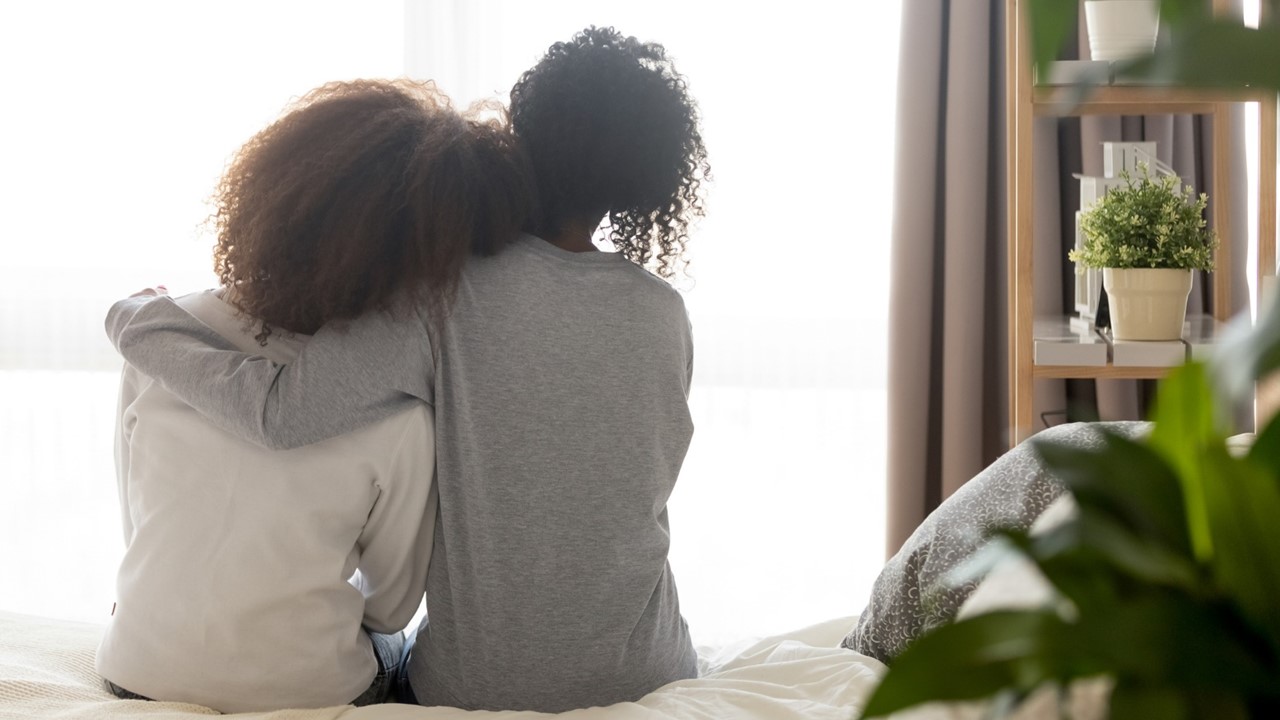COVID-19 Story Tip: Stressed about 'returning to normal'? Here are tips to ease into the transition
06/16/2021

It’s been over a year since our lives turned upside down because of the COVID-19 pandemic. With almost half the U.S. population vaccinated with at least one dose of the vaccine, businesses are reopening to full capacity, and masking restrictions for vaccinated people are easing. But, for some adults and children, adjusting to loosened restrictions, opening of event venues, such as concerts and weddings, and returning to work, school or other activities, may be a cause of stress and anxiety.
“A common question many ask is if and when there will be a sense of normalcy,” says Neda Gould, Ph.D., assistant professor of psychiatry and behavioral sciences at the Johns Hopkins University School of Medicine. “While some things will seemingly return to normal, not everything will be back to how we remember it. We still need to exercise caution — for example, many adults are vaccinated, but most youths are not — and we need to find ways to adapt to this new way of living.”
People will be faced with making decisions regarding activities they feel comfortable engaging in. Understandably, many will have difficulty reintegrating into these activities and society after a year of isolation. “From an emotional perspective, we have seen increased stress, burnout, sleep disturbance, anxiety, depression, trauma-related disorders and a general sense of grief of the life we knew. There will likely be a broad spectrum of emotions going forward as we begin to rebuild from a year that has reshaped us as individuals and as a society,” says Gould.
Johns Hopkins Children’s Center experts say the adjustment may also bring a range of feelings for children and teens. “Some kids may experience excitement; others may be depressed or have anxiety,” says Carisa Parrish, Ph.D., associate professor of psychiatry and behavioral sciences at the Johns Hopkins University School of Medicine. “The past year and a half has been a whirlwind, and that may stir emotions of everything they went through not seeing friends, staying home for an extended period or even the loss of a loved one.”
Furthermore, with COVID-19 vaccines not approved for younger children, many must continue wearing masks and may still not be able to spend time with friends, even though adults and older peers do not have to follow the same guidelines. “Younger kids may feel like it’s unfair,” says Parrish. She recommends explaining to children that this moment in time won’t last forever. They’ll be able to do more activities as soon as it’s considered safe for them,” she adds.
Parrish advises parents to pay close attention to any changes in their child’s mood and be mindful of their feelings, with parents emphasizing that there is no correct way to feel. If feelings of anxiety persist for longer than a few weeks, Parrish recommends speaking to your child’s school counselor, pediatrician or another medical professional.
For adults who feel anxiety, as well as their kids, Johns Hopkins Medicine and Johns Hopkins Children’s Center experts offer these tips to ease the transition:
· Make a plan when you can.
· Reintegrate gradually, when possible.
· In your mind, walk through what you may expect and anticipate challenges. If you have children, walk through the process with them as well.
· Accept that you and your kids may feel a variety of emotions, and make space for them.
· Share your feelings with people in your support network, and encourage your kids to do the same either with you or with friends. Understand that you and they are not alone.
· Know that some things will be out of your control, but you will be able to handle them when they arise.
· Review how things went after a transition, to identify helpful strategies and tease out less helpful aspects. Consider this a work in process.
Gould and Parrish are available for interviews on how adults and kids can deal with their emotions and cope with stress and anxiety as we return to normal after COVID-19.
Additional information:
